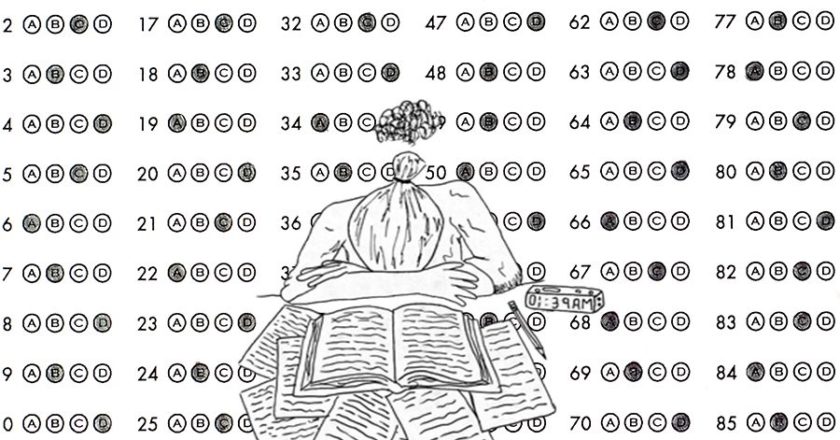Dear Standardized Testing,
It’s been about 500 days now since we first met. That’s 1 year 4 months, 500 days, 11,664 hours, 699,840 minutes, and 41,990,000,000 seconds that we’ve known each other. Here’s our story:
From the first time I heard that you existed, I knew that you’d suck at what you do. What are you anyway? A score, a number, a data point? What exactly do you represent?
For me, you represent what happens after taking countless practice tests. Since when is it possible to run out of tests? I’ve taken a trip down memory lane of ACT land, dating back to 2004 tests.
And why is every English and reading section about Van Gogh or Picasso? If you’re going to make me read for 55 minutes, at least make it interesting. The funny part is that you’ll reuse reading sections and think that I won’t notice. You thought wrong ACT, I’ll catch you every time.
What do these tests truly assess? How smart you are, a prediction of your success in college? Over the course of my experience with these tests, I’ve realized that both the SAT and ACT only unfairly label students. These companies “standardize” these tests, but what they really do is standardize students. Assuming that all students will be able to demonstrate their true academic potential under the same conditions, especially when there are multiple limiting factors, is truly appalling.
Standardized testing often misrepresents who students are in the classroom. Generally, these tests don’t truly assess achievement, but rather, are strongly influenced by personal circumstances and money. Many students are unable to prepare at the same level as those with tutors or comprehensive preparation plans. For excellent students who lack these resources, these tests can limit their ability to showcase their true academic potential.
For some, multiple-choice tests just don’t work. Many students, including myself, will overthink the questions due to anxiety or self-doubt. Students learn and perform best in different environments; therefore, to expect students to be able to perform the same task, in the same way, is simply unreasonable, especially for a college admissions process. Sometimes, it feels like these tests are built to confuse students. Just because you see information in the passage or get the same solution, it doesn’t mean you’re right.
Think about it: College Board and ACT are simply businesses. CB’s Advanced Placement courses are presumed to be accepted for college credit, at least they market it that way. Many students will dedicate an extreme amount of time and money for this test by studying, hiring tutors, and paying the ridiculous cost of the test itself. Then, after all of this, many students are told by their college that the credit doesn’t count. In this case, College Board takes students’ money and they are still expected to pay for a similar course at the undergraduate level.
GA has always emphasized the importance of the learning process rather than a score, so to offer AP courses and have teachers abide by a set curriculum that focuses merely on results is unreasonable. Eliminating AP classes not only supports the fight against College Board, AKA “the evil empire,” but it also provides GA teachers with the freedom to teach their own curriculum. It is time to hold these companies accountable.
ACT and College Board, are you really an indicator of college and career readiness? It’s simple: you are not. Only a portion of students can confidently say that their scores reflect their academic potential. To be blunt, you are a waste of students’ time, money, and energy to say the least.
Standardized testing, now that our relationship has lasted 1 year 4 months, 500 days, 11,664 hours, 699,840 minutes, and 41,990,000,000 seconds; in theory, we should be best friends. In practice, we’re definitely not.
Yours (not) truly,
Your frenemy Maddie Gamburg

